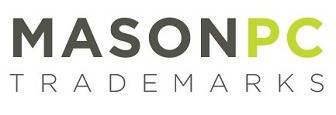One of the most valuable ideas you’ll ever have is the name for your business. It’s valuable because it’s what the public will associate with your business. They’ll use it every time they buy your products and services.
At least, that’s the hope!
A name’s ability to point consumers to your products or services depends on a couple of factors. One, whether your name is generic or descriptive of what you sell. These kinds of names generally don’t point to any one business since many businesses use them in advertising their products and services. If you would like some guidance on avoiding these kinds of names, check out this blog post.

The other main factor that determines if the public will associate your name with your products and services is how similar your name is to other names in your industry. And the only way to know if your proposed name is like any others is to conduct trademark searches.
A trademark search is one of the best investments you can make in your business. Time and again, we see new business owners commit to and invest in promoting a name only to discover that someone else had the same or a very similar idea. Not only will you have to change the name you’ve invested in, but you’ll be lucky to avoid having to pay for the damages caused to the other company. You can avoid these risks by conducting a thorough trademark search before you start using your new name. In other words, search it before you love it!

A trademark search should cover the trademark register, business names, domain names and the internet, and the results must be analyzed for any references that could be considered confusing with your proposed name. Confusing doesn’t mean identical to. It’s broader than that. A name would be confusing with another if the average purchaser, who is vaguely familiar with one name, would be likely to believe that the second name comes from the same person or company.
With that test in mind, here’s where you should look for potentially confusing names:
Canadian Trademarks Register
The trademark register is the most important place to search the availability of a name, because it includes both registered trademarks and trademarks that businesses have claimed for their future use. In many instances, these proposed trademarks can’t be found online or on any other databases, but their existence is important because they translate to legal rights that could affect the availability of your proposed name.
The Canadian trademarks register is available for the public to search, and it is a relatively user-friendly database. However, you can spend a lot of time reviewing search results if you don’t approach it with a good search strategy.
We recommend searching the exact words of your trademark in the “TM Lookup” field.
If your mark consists of common English words, there’s a decent chance this search will have a lot of results, and you’ll want to narrow them by the types of goods and services that are claimed in the trademark application or registration. You can do this by adding another search criteria, and in particular by Nice International class or by keywords in the goods and services. This will enable you to easily identify the trademarks that cover goods and services that are similar to yours.
If your search for the exact words of your trademark didn’t show any or many results, you should broaden it with a search for the dominant letters or words of your trademark. The dominant element of a trademark is usually the first word or combination of letters. If there’s a lot of marks, you can also limit the results by adding another search criteria, such as Nice International class or keywords in the goods and services.
This search strategy details how you can search for potentially conflicting names. If you want to search for potentially confusing logos, you can do so by adding Vienna codes as another search criteria. Vienna codes describe the figurative elements of designs, and all Canadian trademarks that incorporate a design are indexed following these codes.
If your search of the Canadian trademarks register does not identify any similar marks covering similar goods or services, this is a good sign that you will likely be able to register your proposed mark (assuming its inherently distinctive). However, since trademark availability also depends on whether there are confusing unregistered trademarks in use in Canada, you should also search the Internet, social media and Canada411 listings for potential references to your proposed name.
Many Canadian business plan to eventually sell to US customers, but surprisingly, they often overlook searching to see if they can legally own their name there. You can’t just assume that a mark is available for use in the United States if no potentially confusing marks came up on the Canadian trademarks register. Trademarks are country-specific, and so each country ‘s trademark register must be searched separately.
If you are planning to use your mark in the United States and other counties, our free consultation is tailor made for you.

Domain names
Domain names don’t equal legal rights, but they often lead to websites that show the use of trademarks that incorporate the words in the domain name. This is why we always review the home pages of all domain names that feature a proposed name, and we analyze it to determine whether consumers are likely to be confused.
Additionally, searching domain names will tell you if the ones featuring your name are available for you to register. If your proposed name is not available as a URL for your business website, you might want to re-consider the name all together because it could be difficult for your customers to find your website.
Business names
A federal NUANS search provides a list of existing corporate and business names in every Canadian province with the exception of Quebec. A CIDREQ search will provide a list of business names registered in the province of Quebec.
Both NUANS and CIDREQ searches are important to tell you if your proposed name is already registered as a business name. Unfortunately, however, neither of these searches will tell you the nature of the business associated with any given name, or if the business is even active. So, if your name or something very similar is already registered as a business name, you’ll have to investigate further to see if the name is used in association with a business in the same industry as yours.
Internet Searches
The Internet is largest publicly available database of potentially confusing names. You should carefully examine each reference to your proposed name to determine if it is used in relation to the advertising or sale of products or services, and whether those products and services will compete with or be sold in the same types of venues as yours. If the answer to either of these questions is yes, the reference could relate to trademark rights that affect the availability of the name for your planned use. You will have to investigate whether those products and services are sold in any of the same countries where you plan to do business.
Searching BEFORE you adopt a new name is the best investment that you can make towards setting your business up for success. For help in determining whether a name is available for your business to use, schedule a free consult with our experienced trademark lawyers.


